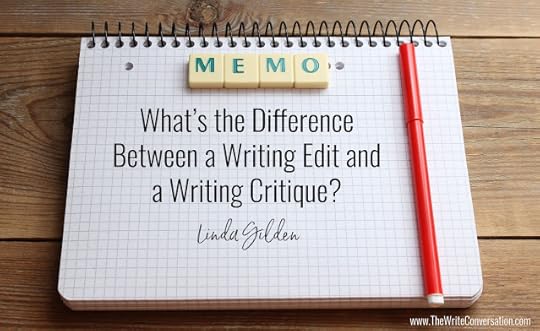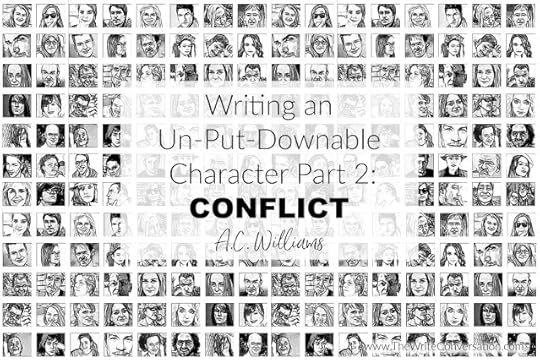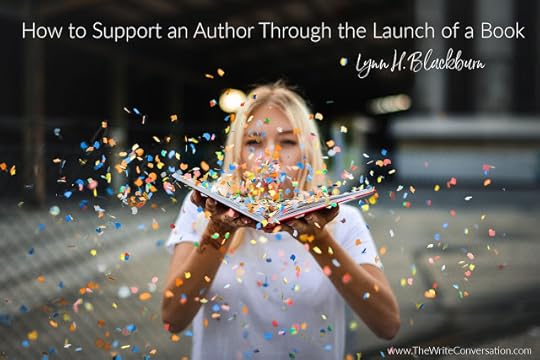Edie Melson's Blog, page 133
March 10, 2022
The Lord’s Prayer for Writers (Part 1)

by Joshua J. Masters @JoshuaJMasters
The Christian writer should live in continual prayer. That may feel overwhelming, but Jesus said, “…when you pray, go into your room, close the door and pray to your Father, who is unseen. Then your Father, who sees what is done in secret, will reward you” (Matthew 6:6 NIV).
God not only wants us to pray with sincerity about our lives and writing, but He’s excited to reward us for it. In last month’s column, we explored 5 Things Replacing God’s Direction in Your Writing. It’s a sobering list, but the antidote to all those distractions is spending quality time with God in prayer.
Easier said than done, right?
Christ knew we’d struggle with how to pray. So, He gave us a model of how to approach our Creator—a roadmap to grow our prayer lives. We call it the Lord’s Prayer, but it wasn’t really a prayer Christ offered the Father, nor was it a prayer He wanted us to repeat as our own. It was a tutorial for us and the disciples to better understand what we should focus on in prayer.
This month, we’ll look at the first stanza of the outline Jesus gave us:
This, then, is how you should pray:“Our Father in heaven,hallowed be your name,your kingdom come,your will be done,on earth as it is in heaven.”(Matthew 6:9-10 NIV)
This opening posture is all about approaching God with an understanding of His character. Many of us jump into the wants and requests of our prayers before we really acknowledge God.
But if you read the Psalms, you’ll see prayers of great need or sorrow always begin by worshipping the One who already has the solution and the One who’s still holy even if He doesn’t.
This is more than a courteous greeting at the beginning of a letter. It’s a submission to the nature of God.
Here are Three Things to Remember as We Approach God About Our Writing:
1. Approach God Relationally “Our Father in heaven…”
That would have been a shocking statement for the disciples to hear Jesus utter and even more foreign for them to consider praying for themselves. The Jewish Scriptures of the Old Testament certainly referred to God as a heavenly father, but for most, it wasn’t a personal relationship. This was a new and intimate way to approach God.
And that’s exactly how God wants us to meet Him—in relationship, as a child comes to a loving father. There’s still a sense of authority in the title, but the relationship makes our time with God an invitation to warmth, closeness, and affection.
Is that how you feel when you talk to God about your writing? The thought of praying for their careers intimidates many authors, but it was your heavenly Father that planted this calling in your heart to begin with. It was His creative nature you inherited, and it was His Spirit that crafted your gifts. Doesn’t a father want to hear about his child’s life—the ups and down, the successes and sorrows?
God is inviting you into a relationship of honesty and intimacy with Him in prayer. Remember that as you come before Him about your writing.
But that stanza goes beyond just calling Him our father. It specifically notes He’s our Father in heaven because God is still sovereign, which leads us to the second way we should approach God.
2. Approach God with Reverence “Hallowed be your name.”
Another way to translate that phrase might be, “May Your name be lifted up as holy.” God’s not only the lord of your writing career, He’s the Lord of lords and the King of kings. He is set apart (which is what the word holy means).
Prince William, the future king of England, often speaks about the deep love and respect he has for his grandmother, Elizabeth II. They share a close, intimate relationship. But do you know what William does when he walks into a room with his beloved grandmother? He bows. And he never turns his back toward her. Why? Because Elizabeth isn’t just his grandmother; she’s his queen.
God does want us to approach Him like a child does his father, but He’s still the creator of the universe. We can’t simply ask God for the car keys and then ignore Him like a spoiled teenager.
That applies to our writing as well.
Many of us pray for things like this:“Help me win this award.” “Give me time to meet this deadline.”“Please let Steve Laube like my book proposal.”
I’ve prayed for all those things. But before we reflect on what we want from God, we’d do well to reflect on His sovereignty.
That means submitting our writing and in our lives to His will.
3. Approach God with Resignation “Your kingdom come, your will be done, on earth as it is in heaven.”
That’s a nice sentiment when you contemplate Christ’s final throne of power in eternity. It can seem somewhat less appealing if you want to control your writing career and get God onboard with your plan instead of the other way around.
Soren Kierkegaard famously said, “Prayer does not change God, but it changes him who prays.”
The purpose of prayer is to align ourselves with God’s kingdom and His will as we grow in a deeper relationship with Him.
Are you willing to come before God with resignation, acknowledgement, and submission to His plan for your writing? Are you willing to do that regardless of the outcome? That’s the arduous work of spiritual growth: fully releasing our desires for His. Christ’s command for us to pray isn’t so we can ask Him to build us a kingdom, but to beseech our sovereign God to reveal our role in His.
Does that mean we never ask God for anything in our writing careers? Of course not. He wants to be deeply involved in every detail of the calling He’s given you. We’ll address that next month.
But in the meantime, let’s practice praying to our heavenly Father in relationship, with reverence, and with resignation, knowing the One who called us to write for His glory wants us to be there with Him.
TWEETABLEThe Lord’s Prayer for Writers (Part 1) - insight from @JoshuaJMasters on @EdieMelson (Click to Tweet)
 Joshua J. Masters is a pastor, author, and speaker with a heart for encouraging others. His book on prayer, AMERICAN PSALMS, was a Serious Writer’s Book of the Decade finalist. He’s been featured on CBN Television, HIS Radio, the Light Radio Network, and worked in the film industry as a member of SAG-AFTRA performer. He is a regular teacher and speaker for large groups. A self-proclaimed sci-fi and comic book geek, Josh loves film, pop culture and is known in some circles as THE BAT PASTOR. Joshua was raised in the White Mountains of New England and now serves as a pastor in South Carolina where he lives with his wife, Gina, and their miniature poodle, FRANKLIN THE PUP, who is the subject of his latest book. Josh would love to connect with you on his website, JOSHUAJMASTERS.COM
Joshua J. Masters is a pastor, author, and speaker with a heart for encouraging others. His book on prayer, AMERICAN PSALMS, was a Serious Writer’s Book of the Decade finalist. He’s been featured on CBN Television, HIS Radio, the Light Radio Network, and worked in the film industry as a member of SAG-AFTRA performer. He is a regular teacher and speaker for large groups. A self-proclaimed sci-fi and comic book geek, Josh loves film, pop culture and is known in some circles as THE BAT PASTOR. Joshua was raised in the White Mountains of New England and now serves as a pastor in South Carolina where he lives with his wife, Gina, and their miniature poodle, FRANKLIN THE PUP, who is the subject of his latest book. Josh would love to connect with you on his website, JOSHUAJMASTERS.COM
Published on March 10, 2022 22:00
March 9, 2022
Prepare for a Writing Conference with These Never-Before-Told Tips!

by Julie Lavender @JLavenderWrites
Conference season is upon us, and stellar articles abound on what to take to a conference and how to prepare for one. You’ll find informed articles right here on this site.
However, some of the more knowledgeable contributors have left out a few important suggestions. I’ll share them with you below. (Lest I stir the ire of those who think I’m discounting others’ expertise, you obviously don’t speak snark, so I suggest you move on to another form of social media and find someone else to pick on. If, however, sarcasm is your second language, like mine, read on for important conference tips.)
Snarky Conference Preparation Tips
1. Be prepared to leave thoughts of home behind, for the most part, when you get to the conference. Concentrate completely on meeting new friends, catching up with old friends, learning as much as your brain can handle, and pitching great ideas. That might mean preparing meals ahead of time for the hubby or spouse. (Lest I stir the ire of my compatriots who think their hubbies should take care of themselves while you’re away, let me share that my love language to my husband is cooking and baking. I enjoy preparing meals for him. His love language to me is acts of service, like doing yardwork, folding all of the laundry, and many other household responsibilities. When I leave meals-ready-to-eat in the fridge, I can relax more at the conference, knowing my husband is cared for and thinks of me each time he indulges in my cooking.)
2. Have small mints handy. Don’t scare away an editor with your breath before they even hear your pitch. Your room might be far away and you won’t always have time to run back to brush your teeth after those delicious meals. Sure, you can take a toothbrush and paste with you in a purse, but you also might not have time to freshen up before you see that editor or agent you want to chat with. (And, lest I stir the ire of my dental hygienist friends who worry about cavities from munching on mints all day, then be sure to look for sugar-free mints and brush twice when you get back to the room.)
3. Pack a lightweight robe for cover up, in case, like me, you suffer from occasional power surges. There’s nothing worse than drying your hair in a small, closed bathroom when a wisdom flash hits (heh—if my dermatologist kindly calls them “wisdom spots” instead of “age spots,” then I can call that evilness whatever I want to call it). With a lightweight robe, you can dry your hair in skivvies and a robe after a shower in a bigger, airy room and not break out in such a sweat that you need another shower. (Lest I stir the ire of any of my irritable, hormonal friends, yes I said that aloud. Sweat across the forehead is miserable and not pretty. Even in the comfort of one’s own room with just a roommate.)
4. Tuck a pair of earplugs in your toiletry bag, just in case the roommate is a rather noisy sleeper. You never know—she might have been a precious, sweet, online buddy for a long time, but you could be surprised that her snores rattle the blinds at night. (Lest I stir the ire of former roommates … I’ve only heard of snoring roommates … I’ve not experienced it myself except for a non-writing conference I attended once, and she not only rattled our blinds, but those of the floors above and below.)
5. Smuggle in one of those compact-style magnification mirrors and make sure you have a pair of tweezers in your bag. For conferences that last several days, sometimes those misplaced eyebrows—aka chin hairs—seem to take on a life of their own when you’re away from home and grow exponentially. You’d hate to be accepting an award and trip over a chin hair. I wouldn’t know that by experience—I’ve just heard it can happen. (Lest I stir the ire of those who have come close enough to call me a liar, mind your own business. I’ve seen your errant chin hairs, too. Did I say that one out loud?)
6. And lastly, fill your suitcase with an open mind, a great attitude, and a willingness to learn. Tongue-in-cheek comments aside, I love everything about conferences. I look forward to them every year. Each one I’ve attended has made me a better person and a much better writer. I’ll take chin hairs and snoring roommates and maybe even a cavity or two, but don’t take away my conferences.
See you soon! Please comment below on other must-have-conference-items that I’ve forgotten!
TWEETABLEPrepare for a Writing Conference with These Never-Before-Told Tips! from @JLavenderWrites on @EdieMelson (Click to Tweet)
 Julie Lavender is excited about upcoming conferences this year and plans to meet tons of new people. She prefers those who speak a bit of snark and sarcasm and ones that laugh a lot, but she’ll accommodate others, too. She invites you to take a look at her two most recent books and consider sharing them with others for Easter gifts this year. Check out 365 Ways to Love Your Child: Turning Little Moments into Lasting Memories (Revell/Baker) and Children’s Bible Stories for Bedtime (Zeitgeist/Penguin Random House).
Julie Lavender is excited about upcoming conferences this year and plans to meet tons of new people. She prefers those who speak a bit of snark and sarcasm and ones that laugh a lot, but she’ll accommodate others, too. She invites you to take a look at her two most recent books and consider sharing them with others for Easter gifts this year. Check out 365 Ways to Love Your Child: Turning Little Moments into Lasting Memories (Revell/Baker) and Children’s Bible Stories for Bedtime (Zeitgeist/Penguin Random House).
Published on March 09, 2022 22:00
March 8, 2022
What’s the Difference Between a Writing Edit and a Writing Critique?

by Linda Gilden @LindaGilden
Writers sometimes get confused by the difference in an edit and a critique. They are definitely two different processes and both will benefit your work and help you grow as a writer. Let’s see if we can clarify what each is and the benefits to your writing.
A Writing EditWhen you think of edits, many people think back to their high school days when their papers were returned to them with red marks galore. In an edit, red marks can help you see your editor recommendations but should not make you feel like your work has bled to death. Even though there are several different types of editing, editing for grammar and punctuation mistakes is usually the first thing that comes to mind. However, when seeking an editor, you will need to choose what type of edit you need, then search for the appropriate editor. There are several types of edits. Some involve going line-by-line. Some pay more attention to the flow of your story. Others just “proof” the manuscript for obvious errors.
Some writers look for an editor hoping to find someone who will just sit down and “fix” all the mistakes in your manuscript. The writer just wants to get it in final form so it can start its publishing journey. But writers must remember that an editor is only making suggestions for changes and he or she must approve any edits that have been made. Studying your edited manuscript is an excellent way to learn new techniques and to see what mistakes you ae making consistently so you can refrain from making those in the future.
A Writing CritiqueOn the other hand, a critique is an overview of your manuscript with an eye toward things that don’t make sense, restrict the flow, or mistakes that have been repeated over and over. This may be done by a professional individual or a group of beta readers from your writing group. For this process, it may be helpful to have someone who doesn’t know your story and is from your target audience to give you feedback.
When I was writing children’s books my ten-year-old neighbor was my best critiquer. Some of her comments were often things like – “You are talking down to us. Don’t do that!” “That is Mickey Mouse. Just because we are young doesn’t mean our brains don’t work.” “Common knowledge. Tell us something we don’t know.” Blunt, yes, but extremely helpful.
With a critique, generally all corrections are made by the writer on the suggestion of the critiquer. This show you ways to make your writing stronger. One of my writing mentors often looks at my work, suggests how to rewrite a sentence to make more sense, and then tells me why. I have learned so much.
Writers are often told to self-edit their work by setting is aside for a few days, having the computer read it to them, or use spell-check. All great editing tools. But in the end, if you can have someone read your work who is totally uninvolved in the writing, you will find things through the questions they ask you about the story, how you found yourself in a certain situation, or why a process advanced in a certain way that will help you make your work stronger and more understandable.
The goal of writing is to communicate clearly to our readers in a way that will be life-changing. Both a good edit and an honest critique will contribute to that!
Have you found edits and critiques helpful? Share with us your story in the comments.
TWEETABLEWhat’s the Difference Between a Writing Edit and a Writing Critique? insight from @LindaGilden on @EdieMelson (Click to Tweet)
 Linda Gilden has coauthored 11 books with 5 different coauthors and has #12 and #13 coming out in 2022, adding a new co-author to the list. She loves every one of her coauthors and enjoys collaborating on interesting projects with them. She also has written many books on her own and realizes what a treasure and blessing a good co-author is.
Linda Gilden has coauthored 11 books with 5 different coauthors and has #12 and #13 coming out in 2022, adding a new co-author to the list. She loves every one of her coauthors and enjoys collaborating on interesting projects with them. She also has written many books on her own and realizes what a treasure and blessing a good co-author is.
Published on March 08, 2022 22:00
March 7, 2022
3 Reasons Why Writers Need Good Writing Friends

by Cindy K. Sproles @CindyDevoted
The wonderful thing about attending writing conferences is making friends. It's a little intimidating when we attend, especially as a first-timer. There are little to no other conferees that we know, and that means we shrink just a little. We may even wonder where that confidence went we had before we left home. Let's be honest. It's a little scary. This is why peers are essential.
3 Reasons to Establish Your Writing Community
1. Make a friend: When you walk into the conference, your priority is to make a friend. Sit next to someone and start up a conversation. I know—writers are introverts, and most of us struggle with those initial conversations. Carry mints or gum, pens, something you can say, "Would you like a _________?" The conversation will go forward from that icebreaker.
At my first Blue Ridge conference, I sat by the big windows in Pritchel. My arms were covered in poison ivy and wrapped in white gauze. It was all I could do to not scratch. I looked like a zombie. Who in their right mind would even want to stand close to someone who looked like they'd played a role in The Walking Dead? To my surprise, a lovely young woman sat down across from me. She crossed her arms and sweetly smiled. Then she said, "I heard folks were itching to get here."
I burst into laughter, and that was it. We became friends. The two of us hung out together, added a couple of others, and before you know it, we bonded. We became critique buddies and encouragers. A few years later, that sweet friend became a Christy Award nominee, and she invited me along to share in the festivities. We are still friends. The point is, make friends, and you will sustain one another through the years.
2. Accountability: Your peers keep you accountable in your work. By that, I mean they keep you working. These accountability peers are great if they are writers because they learn the craft along with you. They get those highs and lows we experience as writers, and they cheer us on. But let's not forget those non-writers who serve to support us and keep us accountable.
I have a wonderful friend who is an avid reader. Even though she loves me, she is sincere. When I begin a novel, she is the person I fire the chapters to as a reader. Her perspective keeps my story in line with what a reader expects and loves to read. As I am currently working on a novel due in June to the publisher, she asks weekly, "How's Minerva? I'm waiting!" I love this because her forcing my accountability keeps me working when I get lazy or stuck.
She is wonderful to tell me she needs more information or she thinks a scene was a little drab. However, she is not the person I contact before I send out a manuscript. She is strictly a reader, not an editor, and she's not a family member. It's important to remember that family members love us—even if our work is a little smelly, they'll tell us it's wonderful. Don't fall into that trap. Find those accountability buddies, both in the writing world and outside who will love you but remain honest. You need them to keep you moving forward.
3. Peer Mentors: Sounds like an accountability partner, but it's not. Everyone needs that one person who can see the bigger picture. This is the person who is excellent at writing mechanics or super at content dissection. They are that one person you can call and brainstorm through a rough spot.
A few months back, I hit a snag in my novel. I was asked to remove a prop from my story. It didn't seem like a big deal since this was not the basis of the story UNTIL every time I removed the prop and replaced it with something else, I had to rewrite the story to make the new prop fit. What started as a simple change rolled into a monster. I lost sight of the story, and what I was trying to accomplish, so I called my friend, Lori. She's a dear writing friend and will serve as that mentor when necessary. She read through, came back, and we spent a couple of hours brainstorming. Boom. We found the fix. It just took new eyes to see through the fog.
A writing mentor/friend is that person with enough truth and vision to help you revise if necessary. It's a person you trust in their knowledge and ability as a writer to know they "know what they are talking about." When you enlist their help, they don't push their ideas on you. Instead, they work through the snag with you. This partnership can make all the difference when you are on a deadline. Seek out that mentor friend and use their ability. They will come to you when the time comes to return the favor. Writing becomes so much fun when you can sit down with another creative and brainstorm.
Finally, we know that writers just "get" writers. We understand the isolation, the thought process, the need to spin a creative idea. Begin early in your writing career to find these people and put them in place. Some will remain by your side forever while others move in a different direction. When that happens, rejoice in the time and work you shared together. Remain fast friends but give your blessing over their work as they move in a new direction. The point is to discover these individuals who will be your writing peers. You will be surprised how the quality of your writing will improve and how quickly you will grow. The community—a writing necessity.
TWEETABLE3 Reasons Why Writers Need Good Writing Friends - insight from @CindyKSproles on @EdieMelson (Click to Tweet)
 Cindy K. Sproles is an author, speaker, and conference teacher. She is the cofounder of Christian Devotions Ministries and the executive editor for www.christiandevotions.us and www.inspireafire.com. Cindy is the lead managing editor for SonRise Devotionals and also Straight Street Books, both imprints of LPC/Iron Stream Media Publications. She is a mentor with Write Right and the director of the Asheville Christian Writers Conference held each February at the Billy Graham Training Center, the Cove, Asheville, NC. Cindy is a best selling, award winning novelist. Visit Cindy at www.cindysproles.com.
Cindy K. Sproles is an author, speaker, and conference teacher. She is the cofounder of Christian Devotions Ministries and the executive editor for www.christiandevotions.us and www.inspireafire.com. Cindy is the lead managing editor for SonRise Devotionals and also Straight Street Books, both imprints of LPC/Iron Stream Media Publications. She is a mentor with Write Right and the director of the Asheville Christian Writers Conference held each February at the Billy Graham Training Center, the Cove, Asheville, NC. Cindy is a best selling, award winning novelist. Visit Cindy at www.cindysproles.com.
Published on March 07, 2022 22:00
March 6, 2022
Update Your Website with These Spring Cleaning Tips

by Kristen Hogrefe Parnell @KHogrefeParnell
Who is ready for spring this month? I live in Florida, and even the Sunshine State has been nippy this winter.
For many of us, spring cleaning involves purging our homes of the cobwebs, dust, and excess that we don’t want or need. As writers, let’s not forget to do the same for our websites.
Last time we chatted, I shared about the importance of Creating a Lead Magnet and how it can help readers connect with you. Before we continue talking about creating a lead magnet, let’s pause and make sure we’ve completed some routine website maintenance first.
4 Tips for Website Spring Cleaning
#1: Broken LinksIf you have hundreds or thousands of blog posts, I’m not asking you to check each one for broken links. My suggestion would be to identify your highest performing posts and check those.
However, you should review every page on your website as part of this spring cleaning. Click on your page links to make sure they’re active and not broken. For example, perhaps you reorganized your page names last year, and now, some of your internal links don’t work as a result.
Fixing broken links is an easy task and can make all the difference in a visitor’s first impression of your website.
#2: Outdated or Missing ImagesAnother consideration involves updating your personal images. When was the last time you added a new headshot? If your headshot isn’t recent, consider finding a professional or even amateur photographer to take some new shots. Paying for quality images speaks volumes for how seriously you take your website. Plus, new headshots can serve double duty on business cards, guest blog appearances, and the back cover of your future book.
In addition to updating old images, check for any broken images. Much like broken links, missing images send a poor first impression to visitors.
#3: Outdated PluginsPlugins are those software add-ons that jazz up your website. Examples include image galleries, social media icons, newsletter signup forms, and more. In theory, once you’ve added a plugin, it should work until you discontinue using it. However, that isn’t always the case.
The other day, I was reviewing my website and realized my Instagram footer was only showing my handle but none of my images. Sure enough, the plugin indicated that I needed to connect my Instagram account. I’m not sure why the connection broke, since I hadn’t changed my Instagram handle, but after a few easy steps, I was able to relink without an issue.
#4: Current ContentThis last tip is a friendly reminder to make sure you’re posting new content regularly. Maybe for you, that’s every other day, weekly, or bi-weekly. The key is consistency.
In addition to blog posts, read through your page content too. Do you need to refresh your bio? Have you scheduled speaking engagements for the year but not updated your events page?
Let’s make sure our sites are current before we draw new readership with our lead magnets, which we’ll look at more next time. When was the last time you viewed your website from a reader’s perspective or completed some routine maintenance?
TWEETABLEUpdate Your Website with These Spring Cleaning Tips from @KHogrefeParnell on @EdieMelson (Click to Tweet)
 Kristen Hogrefe Parnell writes suspenseful fiction from a faith perspective for teens and adults. Her own suspense story involved waiting on God into her thirties to meet her husband, and she desires to keep embracing God’s plan for her life when it’s not what she expects. She also teaches English online and is an inspirational speaker for schools, churches, and podcasts. Her young adult dystopian novels, The Revisionary and The Reactionary, both won the Selah for speculative fiction, and her first romantic suspense novel with Mountain Brook Ink releases December 2022. Kristen and her husband live in Florida and enjoy sharing their lake home with family and friends. Connect with her at KristenHogrefeParnell.com.
Kristen Hogrefe Parnell writes suspenseful fiction from a faith perspective for teens and adults. Her own suspense story involved waiting on God into her thirties to meet her husband, and she desires to keep embracing God’s plan for her life when it’s not what she expects. She also teaches English online and is an inspirational speaker for schools, churches, and podcasts. Her young adult dystopian novels, The Revisionary and The Reactionary, both won the Selah for speculative fiction, and her first romantic suspense novel with Mountain Brook Ink releases December 2022. Kristen and her husband live in Florida and enjoy sharing their lake home with family and friends. Connect with her at KristenHogrefeParnell.com.
Published on March 06, 2022 22:00
March 5, 2022
21 Ways to Pray for Your Writing

by Edie Melson @EdieMelson
Anyone who knows me, knows that I only have one hard and fast rule about writing:
Pray before my fingers hit the keys!
While some of the things we pray are obvious, but here are other things to pray that you may not have considered.
21 Things to Pray for Your Writing
1. Thank God for the gift of writing He’s giving you. Every good gift and every perfect gift is from above, coming down from the Father of lights with whom there is no variation or shadow due to change. James 1:172. Ask God to give you a joyful heart in the midst of difficulty. Rejoice in hope, be patient in tribulation, be constant in prayer. Romans 12:123. Ask God to give you clarity of mind. I will instruct you and teach you in the way you should go; I will counsel you with my eye upon you. Psalm 32:8 4. Ask God to help you let go of expectations and fix your eyes on Him. Set your minds on things that are above, not on things that are on earth. Colossians 3:25. Ask God to keep you from growing weary as you work. And let us not grow weary of doing good, for in due season we will reap, if we do not give up. Galatians 6:96. Ask God to give you the rest you need. Come to me, all who labor and are heavy laden, and I will give you rest. Take my yoke upon you, and learn from me, for I am gentle and lowly in heart, and you will find rest for your souls. For my yoke is easy, and my burden is light.” Matthew 11:28-307. Ask God to protect you from your own heart the cruel words we all say to ourselves. The heart is deceitful above all things, and desperately sick; who can understand it? Jeremiah 17:98. Ask God to help you know what to keep and what to change. Therefore, this is what the Lord says: “If you return, then Iwill restore you— You will stand before Me; And if you extract the precious from the worthless, You will become Myspokesman. They, for their part, may turn to you, But as for you, you are not to turn to them. Jeremiah 15:199. Ask God to give you the faith to fulfil His purpose in your writing. For we are his workmanship, created in Christ Jesus for good works, which God prepared beforehand, that we should walk in them. Ephesians 2:1010. Ask God to protect you from the hurtful words of others. No weapon that is fashioned against you shall succeed, and you shall confute every tongue that rises against you in judgment. This is the heritage of the servants of the Lord and their vindication from me, declares the Lord.” Isaiah 54:1711. Ask God to give you strength. I can do all things through him who strengthens me. Philippians 4:1312. Ask God to give you the patience you need to wait on His timing with your words. But they who wait for the Lord shall renew their strength; they shall mount up with wings like eagles; they shall run and not be weary; they shall walk and not faint. Isaiah 40:3113. Ask God to provide others to walk this path with you. Two are better than one, because they have a good reward for their toil. Ecclesiastes 4:914. Ask God to help you learn what you need to learn. If any of you lacks wisdom, let him ask God, who gives generously to all without reproach, and it will be given him. James 1:515. Ask God to give you friends who will speak the hard truth. Iron sharpens iron, and one man sharpens another. Proverbs 27:1716. Ask God to put others in your path for you to encourage. Therefore encourage one another and build one another up, just as you are doing. 1 Thessalonians 5:1117. Ask God to give you discernment as you gather writing friends. Whoever walks with the wise becomes wise, but the companion of fools will suffer harm. Proverbs 13:2018. Ask God to keep you from anxiety about any aspect of your writing life. Do not be anxious about anything, but in everything by prayer and supplication with thanksgiving let your requests be made known to God. Philippians 4:619. Ask God to give you the courage you need to stay the course. Have I not commanded you? Be strong and courageous. Do not be frightened, and do not be dismayed, for the Lord your God is with you wherever you go.” Joshua 1:920. Ask God to protect you from jealousy and give you a generous heart for others’ success. A tranquil heart gives life to the flesh, but envy makes the bones rot. Proverbs 14:3021. Ask God to use your words in ways beyond what you can hope or imagine. Now to him who is able to do far more abundantly than all that we ask or think, according to the power at work within us Ephesians 3:20
These are the things I pray regularly for my writing and for my friends who are writers.
I'd love to hear what you would add to the list. Please leave your suggestions—along with a Bible verse—in the comments section below!
Don't forget to join the conversation!Blessings,Edie
TWEETABLE21 Ways to Pray for Your Writing from @EdieMelson (Click to Tweet)
 Edie Melson is a woman of faith with ink-stained fingers observing life through the lens of her camera. No matter whether she’s talking to writers, entrepreneurs, or readers, her first advice is always “Find your voice, live your story.” As an author, blogger, and speaker she’s encouraged and challenged audiences across the country and around the world. Her numerous books reflect her passion to help others develop the strength of their God-given gifts and apply them to their lives. Connect with her on her website, through Facebook, Twitter, and Instagram.
Edie Melson is a woman of faith with ink-stained fingers observing life through the lens of her camera. No matter whether she’s talking to writers, entrepreneurs, or readers, her first advice is always “Find your voice, live your story.” As an author, blogger, and speaker she’s encouraged and challenged audiences across the country and around the world. Her numerous books reflect her passion to help others develop the strength of their God-given gifts and apply them to their lives. Connect with her on her website, through Facebook, Twitter, and Instagram.Featured Image: Photo by Priscilla Du Preez on Unsplash
Published on March 05, 2022 22:00
March 4, 2022
3 Reasons a Writer Might Feel Like a Failure

by Tim Suddeth @TimSuddeth
Have you ever felt like a failure?
That’s a silly question to ask writers, or any human being. No matter what we do, there is always a nagging voice that’s going to pop up and say we aren’t enough. We don’t belong.
I’ve heard this from people just beginning their writing journeys. And, surprisingly, I’ve heard it from authors who we would think are too successful to have any doubts.
But there’s one thing about us writers—we are experts at having self-doubts.
Stephen King said, “The scariest moment is always just before you start.” And aren’t we always starting something?
We humans are a curious lot. We are quick to label ourselves negatively when we would never treat a friend that way. Why do we call ourselves failures when we all have the snowballs of life headed our way?
Here 3 things I’ve found that make me feel like a failure.
1. I’ve set a goal that is unreasonable.
Setting goals is a wise and a wonderful way to be more productive. It helps us stay on track and accomplish more than if we just go with the flow.
But goals can also become hurdles when we think we are a failure when we don’t meet them. Often, I’ve set a goal and then something comes up and takes my time or energy away from reaching it.
When I ran a half-marathon to celebrate my fiftieth birthday (I never claimed to be smart. Ask my wife.), the leaders never caught a glimpse of me. They didn’t have to worry about me challenging them.
My goal wasn’t to win, my goal was to challenge myself to finish. One popular running slogan is: dead last is better than did not finish, which is better than did not start. I wasn’t dead last, and I didn’t leave in an ambulance, so, for me, it was a big win.
Did I enjoy being passed by people who looked older or more out of shape than me? No. A couple of times I sped up to stay even with them. But then I’d slow down so I could stay at my pace and finish. My race wasn’t against them, it was against the distance. I was attempting to complete 13.1 miles. Where I was in my conditioning, that was challenge enough.
2. I compare myself to others.
Writing is not a competition against other writers. Much of life is not a competition. Nobody gets an award for having the biggest house, best wardrobe. Or biggest boat. (Really, Jeff Bezos?)
I grew up a NASCAR fan. And there is a saying among the racers, “If you’re not first, you’re last.” That’s the dumbest saying adults utter. (Maybe not, we say some dumb stuff.)
In a car race, as in writing, everyone doesn’t have the same resources or goals. Some teams can barely afford to have a car in the field. Other teams have three or four with full-time, year-around engineers and manufacturers to support them. Some teams buy hand-me-down equipment and comprise people who have other jobs and do this just on the weekends they race.
As writers, we are not all on the same journey. We have different education, career demands, family demands, health issues, talents, callings. Some people are able to write full time. Others are lucking to work in a couple of hours of writing a week between their jobs, children, aging parents, etc. So why do we think we should compare ourselves to a friend, or worse, to someone we’ve heard about but don’t really know?
3. I run out of patience.
Nothing about writing happens quickly. And if you’re writing to get published, put away the watch and get out the calendar. The multiyear calendar. It’s going to take time. Even if you self-publish, a lot of work must go into it first.
And this waiting is hard for me to accept. If I have any talent, or if God has called me to this, shouldn’t it be quicker? Why is it so hard? I can spell and punctuate. How much more is there to know?
While I was mulling over this post, I had on the show, Castle. Castle is about an author who follows a NYPD cop for inspiration for his novels. He must be successful because he has a nice loft in uptown Manhattan. I mean, a really nice loft.
He also has a daughter, Alexis, who is an overachiever. In this episode, she had received a rejection from a college she had applied for, and she was devastated. She asked her dad how he handled getting so many rejections for his writing and not feel like a failure.
Her father answered, “Rejection isn’t failure. Failure is giving up.”
Nailed it, didn’t he?
There’s going to be times when we are going to come up short. Especially if we try to do something that we think is important.
Like riding a bicycle.
Wait. I saw you roll your eyes. Yes, that’s a cliché. So childish. But so applicable, isn’t it? The only way someone can fail to learn how to ride a bike is to give up. Oh, you’re going to be tempted to quit. Asphalt is hard. But the funny thing about the bicycle is that the more you get on and ride, the farther you’ll go.
So, if you start hearing that voice saying you’re a failure, ask yourself the following questions. Is this the right goal for me? Am I comparing myself to someone else? Should I give it a little more time?
Remember, the One who knows us the best, loves us the most. He didn’t create us to perform His plan for us just to see us fail. And He isn’t finished working in us yet.
TWEETABLE3 Reasons a Writer Might Feel Like a Failure from @TimSuddeth on @EdieMelson (Click to Tweet)
 Tim Suddeth is a stay-at-home dad and butler for his wonderful, adult son with autism. He has written numerous blogs posts, short stories, and three novels waiting for publication. He is a frequent attendee at writers’ conferences, including the Blue Ridge Mountain Christian Writers Conference and a member of Word Weavers and ACFW. He lives near Greenville, SC where he shares a house with a bossy Shorky and three too-curious Persians. You can find him on Facebook and Twitter, as well as at www.timingreenville.com and www.openingamystery.com.
Tim Suddeth is a stay-at-home dad and butler for his wonderful, adult son with autism. He has written numerous blogs posts, short stories, and three novels waiting for publication. He is a frequent attendee at writers’ conferences, including the Blue Ridge Mountain Christian Writers Conference and a member of Word Weavers and ACFW. He lives near Greenville, SC where he shares a house with a bossy Shorky and three too-curious Persians. You can find him on Facebook and Twitter, as well as at www.timingreenville.com and www.openingamystery.com.
Published on March 04, 2022 22:00
March 3, 2022
Writing an Un-Put-Downable Character Part 2: Conflict

by A.C. Williams @ACW_Author
Is there anything better in a story than a great character? I don’t think so, but I could be biased. I LOVE characters. I will remember a well-designed character long after I’ve forgotten the story they’re in.
But do great characters just happen? Are they an accident? A lucky spin of the wheel? Not at all. Like anything else excellent in life, a great character requires intentional design. I love creating characters using a ten-step system to flesh them out and make them un-put-downable.
Last month we talked about Personality . This month we’re going to talk CONFLICT.
Oh, Conflict. Beloved, Conflict. Without you, story cannot exist!
Conflict is story, my friends. If you’re trying to write a novel without first establishing an engaging variety of conflict, you’re not going to get very far.
Conflict in plot is pretty straightforward:
Something always goes wrong. Judy needs tomatoes for her casserole, and the grocery store has none. Harold is late to work, and there’s a traffic jam on the highway. Bob’s superpower is rendered null in the presence of sugar, and he’s trapped in a candy factory.
Conflict in plot = Something goes wrong.
What the story needs to resolve is impossible or unavailable or very difficult to achieve.
But did you realize that characters need conflict too?
Conflict is a part of life.
We all get it. Anyone who has to pay taxes understands that. But conflict shows up in two different ways in life: External and Internal.
External conflict is the problem in the story.
It’s Judy needing non-existent tomatoes. It’s Harold who’s going to be late to work. It’s our poor unfortunate Bob the superhero who can’t stomach sugar.
Those are all examples of an external problem causing conflict for your characters. But if you want a truly memorable protagonist (or antagonist, for that matter), you need to create an internal conflict for them to conquer.
External conflict is what happens outside your character.
Internal conflict is something that happens inside them.
It’s how their own desires or beliefs drive the story forward.
Why does Judy need tomatoes? What is it about this casserole that is so important she must acquire tomatoes at all costs? Maybe Judy hates cooking, but she’s trying to make a meal for her best friend. She hates to cook, but she feels like it’s the only way to demonstrate how much she cares. That’s internal conflict.
Why is Harold running late to work? Sure, he could be bad at time management. But what if he’s bad with directions, and he always gets lost whenever he leaves his home? He knows he needs to get to work on time if he’s going to keep his job, but he has to face the fear of being lost every time he walks out his door. That’s internal conflict.
And what about Bob? Poor Bob the superhero. Candy may be what takes away his powers, but what about his motivation? If he knows that candy is his weakness, why would he go into a candy factory? It could be that the villain kidnapped someone and is threatening to drown them in a vat of corn syrup. Bob knows he’ll be weak and that he’ll probably fail as a result of it, but he goes anyway. That’s what heroes do. They stand up against their own fears, weaknesses, and challenges in order to do the right thing.
Obviously these three examples are quite silly, but you get the idea. You must have an external conflict (plot problem) in your story, but to craft a well-rounded, memorable character, you need an internal conflict as well.
In Pride and Prejudice, Elizabeth Bennet holds on to her pride in the face of her family’s ridiculous and offensive behavior. In Star Wars: Revenge of the Sith, Anakin Skywalker surrenders to the Dark Side of the Force in order to save others, sacrificing himself and losing the people he loves at the same time.In Pirates of the Caribbean: Dead Man’s Chest, Jack Sparrow (sorry, Captain Jack Sparrow) goes against his nature to save his friends at the cost of his own life.
Introducing internal conflict deepens your story and makes your characters much richer.
This gives you the opportunity as a writer to make your story about more than just what’s on the surface. Your external story arc is the plot structure. Your internal story arc is the growth your character experiences as a result.
Developing internal conflict for a character begins with understanding his or her personality <link to last month’s post>. If you have a character who is introverted, force them into a situation where they must speak out or stand up in front of people they don’t know. If your character is a peacemaker, put them in a situation where they must be aggressive.
Internal and external conflict are amazing resources you can use to tell a story that resonates with your readers. A great story is more than just what happens to a character; the best stories are about why it matters.
Just so you know, here’s our road map for these ten steps toward character development: Personality Conflict Contradictions History Interests Language Internalization Dreams Observables GrowthTWEETABLEWriting an Un-Put-Downable Character Part 2: Conflict - tips from @ACW_Author on @EdieMelson (Click to Tweet)
Don't Miss the Other Posts in This SeriesPart 1 Personality: Writing the Un-Put-Downable Character Part 2 Conflict: Writing the Un-Put-Downable Character
 Award-winning author, A.C. Williams is a coffee-drinking, sushi-eating, story-telling nerd who loves cats, country living, and all things Japanese. She’d rather be barefoot, and if she isn’t, her socks won’t match. She has authored eight novels, two novellas, three devotional books, and more flash fiction than you can shake a stick at. A senior partner at the award-winning Uncommon Universes Press, she is passionate about stories and the authors who write them. Learn more about her book coaching and follow her adventures online at https://www.amycwilliams.com.
Award-winning author, A.C. Williams is a coffee-drinking, sushi-eating, story-telling nerd who loves cats, country living, and all things Japanese. She’d rather be barefoot, and if she isn’t, her socks won’t match. She has authored eight novels, two novellas, three devotional books, and more flash fiction than you can shake a stick at. A senior partner at the award-winning Uncommon Universes Press, she is passionate about stories and the authors who write them. Learn more about her book coaching and follow her adventures online at https://www.amycwilliams.com.
Published on March 03, 2022 22:00
March 2, 2022
How to Support an Author Through the Launch of a Book

by Lynn H. Blackburn @LynnHBlackburn
A writer friend who isn’t published yet recently asked what she could do to support me during a book launch.
While I’m far from an expert, I did just release by seventh published book. **send chocolate** Having a book release is exciting, amazing, and wonderful. It’s also exhausting, overwhelming, and terrifying. **send coffee** And anything you as a reader, fellow author, friend, or loved one of the author can do to help will be greatly appreciated.
If you want a few tried and true ideas, please read on.
How to support your favorite authors during a book launch.
Pre-release (or really, anytime):
EasyPray.Preorder their book.Subscribe to their newsletter. Takes thirty seconds. Makes a big difference.Follow all their social media accounts, and anywhere else they have a presence: Facebook, Instagram, Twitter, Goodreads, BookBub, YouTube, Pinterest, TikTok, etc. Follow their Amazon author profile. **send chocolate**Share preorder links, memes, graphics, etc. on your social media posts, stories, and reels.Share their name and book title whenever a friend asks “what are you reading” or “what book are you most excited about reading.” AdvancedPrayAsk your library to carry their books. I put this in the advanced column because while it isn’t technically hard, it is when you’re an introvert who doesn’t like talking to strangers, even when those strangers are librarians who love books. **send coffee**Suggest their books to your book club. Not hard, necessarily, but does require book club membership.Next LevelPrayApply for their launch team/street team and promote their book heavily regardless of whether you’re on the team or not. I have friends who will tell me, “I’m not going to take a spot on your launch team, but I’ll share like I’m on it.” This is HUGE. **send chocolate and coffee**Babysit their kids so they can work on publicity/marketing activities. Granted, this requires proximity, but if you’re close enough to do it, they’ll appreciate it forever. Email a gift card to their favorite restaurant so they don’t have to cook. Launch Week/Month
EasyPray.Read their book. This is the easiest thing on the list. :) Share about the book on social media. **send chocolate**If you liked the book, post your reviews everywhere you can. And yes, I put this in the “easy” list because IT IS EASY. Comment on their posts. Even if it’s just a heart emoji or a simple “congrats” it will be appreciated. Depending on how well you know them, send a text of congratulations. Include something like “I don’t need a reply. I know you’re busy. I just want you to know I’m excited for you, and I hope you have great success with your book.” AdvancedPraySnap a bookstagram worthy picture of their book and tag them when you share it.Attend their launch party/signings, etc. The gift of your time will always be appreciated. **send coffee**Buy their book as a gift for a reader friend. This is a gift for both the author and your friend!Next LevelPrayIf you do reels/stories on social media, make one that features their book. You could help them reach an audience they’ve never tapped into before. Volunteer to help with their launch party/signing. This is a gift beyond price.Read their book in public. Take it with you on public transportation, read while you wait for the dentist, prop that baby up on the treadmill at the gym. **send coffee and chocolate**Make or buy cupcakes/cookies/some form of goodness with their book cover as a design element. Christmas ornaments. Stationery. A pencil sketch. The options are as varied as your imagination. Make a video of yourself talking about the book and sharing some of your favorite parts. This is for the truly brave, but I know some of you have it in you!Writing books is hard work. Marketing and promoting a book can be overwhelming for many authors. Your love, support, and enthusiasm could be just what they need to help them persevere!
If you have other ideas, please share them with us in the comments!
Grace and peace,

TWEETABLEHow to Support an Author Through the Launch of a Book, tips from @LynnHBlackburn on @EdieMelson (Click to Tweet)
 Lynn H. Blackburn loves writing romantic suspense because her childhood fantasy was to become a spy, but her grown-up reality is that she's a huge chicken and would have been caught on her first mission. She prefers to live vicariously through her characters and loves putting them into all kinds of terrifying situations while she's sitting at home safe and sound in her pajamas!
Lynn H. Blackburn loves writing romantic suspense because her childhood fantasy was to become a spy, but her grown-up reality is that she's a huge chicken and would have been caught on her first mission. She prefers to live vicariously through her characters and loves putting them into all kinds of terrifying situations while she's sitting at home safe and sound in her pajamas! Lynn’s titles have won the Carol Award, the Selah Award, and the Faith, Hope, and Love Reader’s Choice Award. Her newest series kicked off in March 2021 with Unknown Threat, a 2021 Christy Award finalist.
She is a frequent conference speaker and has taught writers all over the country. Lynn lives in South Carolina with her true love and their three children. You can follow her real-life happily ever after by signing up for her newsletter at LYNNHBLACKBURN.COMand @LynnHBlackburn on BOOKBUB, FACEBOOK, TWITTER, PINTEREST, andINSTAGRAM.
Published on March 02, 2022 22:00
March 1, 2022
How Does a Writer Build a Story?

by Sarah Sally Hamer @SarahSallyHamer
One Step at a Time!
Writing can be overwhelming. The blank page/screen in front of us can make us feel like a total failure. But writing is just like anything else—we can make it happen one step at a time and fill all the pages we need to.
Every story starts with a core premise.
Romances are about a love story. Mysteries have just that—a mystery. Adventure stories are the same. So, what’s your premise? Can you tell your story in 100 words or less? Can you put all the elements in one little sentence? What you’ll end up with is a log line, aka, “The Elevator Pitch”. You’ll need to tell WHO your protagonist is, WHAT they want, WHY they want it, and WHY they can’t get it. Usually the main antagonist is next but, even if you don’t have one of those, something has to be standing in the way of your character. Last but not least is the resolution. HOW does your character solve the problem?
Here's one from a movie you may recognize:Dorothy Gayle, an unhappy teenager, intends to save Toto, her only link to her parents, at any cost. Running away doesn’t work and, even though she comes back home, a tornado sweeps the two of them into an unknown and sometimes very unpleasant world. Dorothy immediately makes a dangerous and vindictive enemy, but finds allies who help her learn how to stand up for herself. After a long journey of really tough education, she realizes that a happy home is inside her and all she has to do is click her heels together.
One Process
This isn’t by far the best log line I’ve ever written, and in fact, it needs a lot of work. But can you see how it shows the emotion character arc and her journey? And, since this is a road map for you, fancy words are not as important. It’s not an easy task but it is worth every hair you have to pull out to make it happen.
Take that 100-word sentence and expand it into a paragraph for each element. This is where you can describe your protagonist, digging deeper into the goal, motivation, and conflict. Then, do the same for that main antagonist. Most of the time, this character is almost as important as the protagonist. (In the Wizard of Oz, the Wicked Witch is a pretty important character.) Most of the story’s conflict is wrapped around these two characters. Intensifying the conflict as it grows into resolution makes the story interesting.
At this point, you have a good start to your story, with a skeleton of what will happen. Expanding it again as you work with each element, adding important information, such as additional important characters, description, character traits, etc., makes a full page. Or, in other words, the basis of a one-page synopsis.
Now, the story is practically writing itself. Adding scenes and additional characters and all the other amazing things a story involves flows, mostly because of that very solid core of the basic premise. Of course, you may have to tweak it as the story evolves, but the “road map” helps to guide you to what the story is about.
It’s called the Snowflake Method by Randy Ingermanson . Sounds easy, doesn’t it? It really is.
A Different Process
Of course, most people who write by the seat of their pants (pantsters) won’t have read this far. It’s usually the plotters of the world who utilize this technique. But it can really help, especially if you’re stuck.
Other types of writing work with this method too. Take this blog for instance. I started with a core premise: building a story. I knew the steps that needed to be there, so I added information around each one. Even non-fiction or self-help books can benefit from this idea.
Bottom lineDon’t let the overwhelming side of writing get to you. Just take a breath and take a step.
What’s your core premise?
TWEETABLEHow Does a Writer Build a Story? Tips from @SarahSallyHamer on @EdieMelson (Click to Tweet)
 Sarah (Sally) Hamer, BS, MLA, is a lover of books, a teacher of writers, and a believer in a good story. Most of all, she is eternally fascinated by people and how they 'tick'. She’s passionate about helping people tell their own stories, whether through fiction or through memoir. Writing in many genres—mystery, science fiction, fantasy, romance, medieval history, non-fiction—she has won awards at both local and national levels, including two Golden Heart finals.
Sarah (Sally) Hamer, BS, MLA, is a lover of books, a teacher of writers, and a believer in a good story. Most of all, she is eternally fascinated by people and how they 'tick'. She’s passionate about helping people tell their own stories, whether through fiction or through memoir. Writing in many genres—mystery, science fiction, fantasy, romance, medieval history, non-fiction—she has won awards at both local and national levels, including two Golden Heart finals.A teacher of memoir, beginning and advanced creative fiction writing, and screenwriting at Louisiana State University in Shreveport for almost twenty years, she also teaches online for Margie Lawson at WWW.MARGIELAWSON.COM. Sally is a freelance editor and book coach at Touch Not the Cat Books, with many of her students and clients becoming successful, award-winning authors.
You can find her at hamerse@bellsouth.net or WWW.SALLYHAMER.BLOGSPOT.COM
From Sally: I wish to express gratitude to the giants upon whose shoulders I stand and who taught me so much about the writing craft. I would list every one, if it were only possible.
Published on March 01, 2022 22:00



